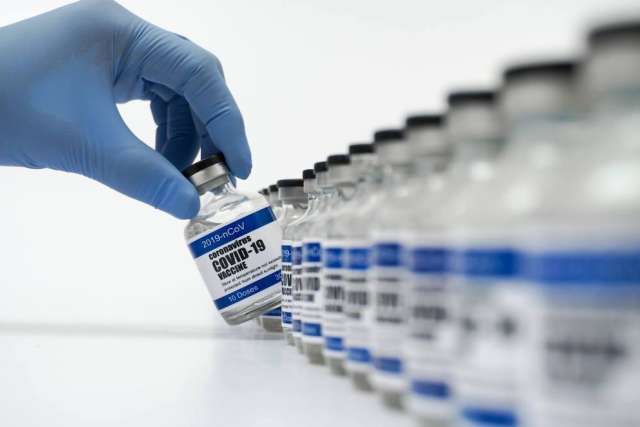As the U.S. continues to battle COVID-19, it can be dizzying to keep up with the influx of new information on the vaccines and the new Sars-CoV-2 variants. Here, UCLA Health experts parse the facts from the fiction and help us understand the developments most relevant to patients.
When I am able to get the vaccine, can I choose between Pfizer or Moderna?
At this time, UCLA Health patients cannot choose which of the vaccines they receive.
And given California’s overall vaccine distribution limitations, “generally, the answer is no,” says Dan Uslan, MD, co-chief infection prevention officer for UCLA Health.
The Pfizer and Moderna vaccines may cause minor reactions. Are there differences between the two?
Both vaccines can cause very similar symptoms, says Dr. Uslan. He places the symptoms in two categories:
- Local symptoms, such as pain at the injection site, redness, sometimes some swelling;
- Systemic symptoms that affect the entire body, like a low-grade fever, headache, and muscle aches.
Symptoms are generally mild and go away after a day or two.
Is there a difference in vaccine reaction symptoms between the first and second doses?
Symptoms are likely to be more pronounced after the second shot.
“There tends to be maybe a few more expected reactions from the second dose, particularly in individuals who are 55 years of age or younger,” says Annabelle de St. Maurice, MD, MPH, co-chief infection prevention officer for UCLA Health. “It’s a sign that the immune system is reacting to something, likely to the vaccine, in producing antibodies and getting T-cells and adaptive immunity to respond.”
Is getting the Moderna vaccine a risk, given the news of allergies linked to a batch in Southern California?
“The allergies linked to the batch were not found to be a concern,” Dr. Uslan says. “That lot of vaccines was released back into use and we don't consider them to be riskier.”
According to the Centers for Disease Control and Prevention, among the 4 million doses given during the first three weeks of administration, 10 cases of anaphylaxis, or severe allergic reaction were reported. No deaths have been tied to the vaccine.
As with any vaccine, there is a low chance of allergic reaction. If you have a history of severe allergic reaction to other vaccines, talk to your doctor about whether you should receive the COVID-19 vaccine.
Is it okay if I swap the authorized vaccine between doses? For instance, going from a Pfizer vaccine in my first dose to a Moderna vaccine in my second?
“No,” Dr. Uslan says. “The CDC and UCLA Health recommend against changing brands between doses because it has not been studied whether or not the vaccines are effective when administered in this way. Having said that, if someone does accidentally get the wrong vaccine for their second dose, it's unlikely to be harmful.”
The CDC states only in exceptional situations should the vaccine brand be switched.
What happens if I am unable to get my vaccine after the recommended interval of 21 days for Pfizer and 28 days for Moderna?
The CDC recommends getting your dose as close to the recommended intervals as possible (three weeks for Pfizer and 28-days for Moderna).
A 4-day grace period is considered valid, so UCLA Health patients will be allowed to schedule their second dose at day 21-25 for Pfizer and day 28-32 for Moderna.
“As long as it’s done within a reasonable period of time – such as up to six weeks – people should be fine and would not need to restart the two-dose series,” Dr. Uslan says.
Will the vaccine give me a positive result on a COVID-19 test?
It depends on which test you take, says Dr. Uslan.
“The vaccine will not cause you to test positive on a PCR or rapid test,” he says. “However, a test done through blood work called serology, or antibody testing may cause someone to test positive on that test.
Furthermore, Dr. Uslan says, “we do not recommend doing an antibody test to see if somebody has had a vaccine effect.”
Antibody tests vary, and not all will test for the antibody that suggests vaccine immunity. Test results can be “difficult to interpret and do not always reflect the full immune response to a vaccine,” Dr. Uslan says.
Will I have to pay for the vaccine?
According to the CDC, the vaccines will be given to the American people at no cost. Some sites are requiring people to provide their insurance information because vaccination providers can charge an administration fee for administering the vaccine.
For uninsured patients the Health Resources and Services Administration’s Provider Relief Fund will cover vaccine administration fees. No one can be denied a vaccine if they are unable to pay the vaccine administration fee.
Is it better to vaccinate more people with one dose or less people with the two recommended doses, given the limited supply?
Boththe CDC and the FDA recommend giving the two-dose series.
“The 95% effectivness that's been studied has been studied with two doses, so we know that the two-dose strategy is effective, and that's what works,” Dr. Uslan says. “The challenges we’ve seen thus far have been distribution related, so we really should be sticking to the FDA-approved two-dose series.”
How long will immunity last after the first dose? Second dose?
The timings of the vaccine doses, determined during the early phases of clinical trials, were created to maximize efficacy, according to an interview with Dr. De St. Maurice.
With a two-dose regimen such as Pfizer and Moderna, the first dose stimulates and primes an immune response. The second dose serves as a “booster” to solidify that response and provide more long-term immunity.
Dr. Uslan says though we don’t yet know how long immunity lasts, studies from clinical trials show that immunity has lasted several months but could last much longer. “We don't know yet whether immunity to these vaccines will be life-long, like with some vaccines or whether people will have to get a booster, like with the flu every year.”
Scientists continue to study how long immunity generated by two doses might last. There are currently no data on how long immunity from one dose might last.
Can someone who has been vaccinated still spread the disease?
Most likely not, Dr. Uslan says – but we don't yet know for certain because it hasn’t been thoroughly studied yet.
“With the Moderna vaccine, there were some studies conducted where a nasal PCR test was done before and then after the vaccine doses,” he says. “It found that the vaccine seemed to be effective in preventing COVID-19 acquisition.”
If the vaccine doesn't prevent the spread of disease, he says, “it would be unlike virtually any other vaccine that there is.”
Should I wear two masks? If so, when?
The CDC updated their guidance on this topic, noting that not all masks provide the same protection.
You can continue to wear one quality mask with at least two layers of tightly woven, breathable fabric, and make sure you are wearing it properly. This means it should completely cover your nose and mouth and fit snugly against the sides of your face and under your chin, without gaps.
The CDC notes that another option is to wear one disposable mask with a cloth mask on top, which will push the inner mask against your face. A mask fitter or brace can also be worn over a disposable or cloth mask to prevent air from leaking around the edges.
The CDC notes that you should NOT:
- Wear an N95 respirator, which should only be used in health care settings.
- Wear a face shield without a mask underneath
- Wear two disposable masks
- Combine a KN95 mask with any other mask
- Wear a mask with exhalation valves or vents, which allows virus particles to escape
- Wear a single layer mask made of thin fabric
“We should be continuing to wear the best mask we can get, while reserving N95 respirators for health care situations,” Dr. Uslan says.
What do we know about the new U.K., South African and Brazilian variants?
There are several variants of the SARS-CoV-2 virus that scientists are actively tracking. These include the B.1.1.7 variant, first reported in England; the B.1.351 variant, first reported in South Africa; and the P.1 variant, first reported in Brazil.
Studies have suggested that these new variants are more transmissible, meaning you’re more likely to catch them, Dr. Uslan says. “That's part of the reason that we really need to continue to be doing all of the so-called three Ws that we've been doing for the last year: the washing of our hands, wearing the masks, and watching our distance.”
The CDC has more information on these variants online.
Will the vaccines protect us as the virus evolves?
As of January 2021, there is no evidence to suggest that the currently authorized COVID-19 vaccines will not work as intended, even if vaccinated individuals are exposed to these variants.
Preliminary studies done suggest that the current generation of vaccines is effective against some of the strains that are out there, says Dr. Uslan.
“But all viruses mutate – like the flu for example – so it remains to be seen whether or not these vaccines will need to be adjusted.”
For more information on the coronavirus or vaccines, visit UCLA Health.





